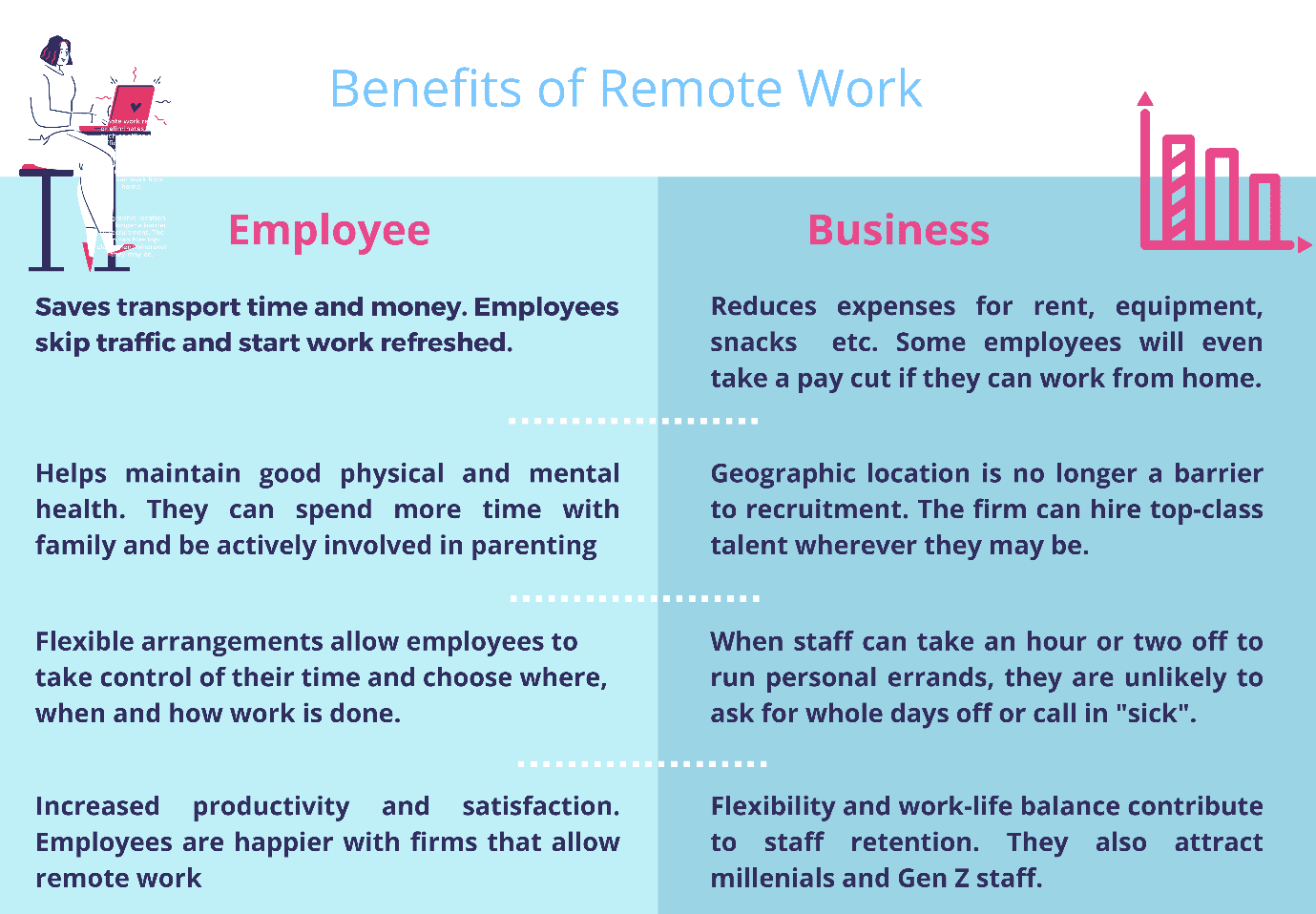Allow me to introduce my friend, Dami, who works in a professional services firm. Dami wakes up at 4:30 am so she can beat the Lagos traffic and get to work early. She spends at least half her working week travelling to meet clients. Dami also works weekends, so she barely has time for herself, not to talk of family or friends. Yet, over the last month or so, she has been working effectively from home. Now that the lockdown has been lifted, she is trying to negotiate for two days of remote work weekly. Dami who had previously accepted that gruelling hours and continuous hustle was her cross to bear now knows that it does not have to be that way. Because that client visit could have been a Teams call, and that meeting could have been an email.
I hear a lot of talk about when things go back to normal after the pandemic. History has shown that when events of this magnitude occur, the world is changed forever. The “normal” that we are used to is a consequence of a series of events. For instance, the 9/11 attacks changed air security forever. Today, we must go through strenuous processes at airports. Before, you could simply walk through a metal detector, and that was all. My Anglican church used to serve communion wine in a single cup for all worshippers, but the Ebola outbreak changed that. Infact, the 1918 Spanish Flu was the beginning of centralised public healthcare systems in many countries and coordinated preventive efforts between nations.
Now we have seen that life as we know it is a man-made concept and can easily be disrupted. Just because something is “normal ” does not mean it is the best or only way. I do not think the world will return to the normal that we know. Rather just a semblance of it. This pandemic has forced individuals, businesses, and nations alike to reconsider their norms and find new ways to do things. As lockdowns are lifted and business picks up again, we must decide whether to stick with our old ways or embrace some of the new cultures that we adopted to survive this period and find a middle ground.
The lockdown has proven that many organisation’s employees can work effectively from the comfort of their homes. Of course, this varies according to industry and job roles. Manufacturing companies, for instance, would be more reluctant in instituting remote working than their service industry counterparts. Yet, many people regard remote or distributed working as something that is reserved for “tech guys”. When you think about it, their primary work tool is a computer, same for consultants, analysts, pension/insurance administrators, and many others. The difference is that the tech industry actively designed the kind of work culture they wanted and stuck with it. Games in the office, no dress code restrictions, remote work, and a laissez-faire leadership style, all without compromising productivity. If I can deliver the same value to my company and skip 3 hours of commute daily, why don’t we normalise remote working?
For remote working to be successful, accountability and trust are crucial. Employees should be able to motivate themselves and deliver quality work with little supervision, and managers must be confident in the ability and willingness of their team members to work and produce good quality output. If there is trust, managers will be able to provide necessary support without micromanaging, so they can focus on the high-level tasks that they were hired to do. Constant badgering, as associated with micromanaging, does not promote autonomy and ownership. In many cases, it hampers creativity as team members tend to produce only what they think you want to see. This could foster a habit of submitting bare minimum work; anything to get you off their backs. Organisations must build a culture of trust as they implement other measures to track productivity. If someone on your team tells you “I’m on it”, managers should be able to take it at face value. Otherwise, there is another conversation to be had, and it has nothing to do with a physical or remote office environment.
Furthermore, remote work should not erode the distinction between personal and professional life. It appears that employees are working much longer hours now than they were at the office. While people are mostly confined to their homes, they still have other interests that may they want to pursue. A salary is only payment for a fraction of someone’s time and not their entire life. Organisations must reach an agreement on the rules governing work-life under these circumstances. It is unrealistic and unfair to demand anyone to be alert round the clock.
There is no one-size-fits-all approach to remote work. The government-imposed lockdowns forced many companies to try out remote work for the first time. The insights gathered and lessons learnt from that phase should be used to decide if, and how, a remote working model can work for them. If so, put in place the necessary systems to support this change. While the work from home format may not have worked for some businesses, they should not be quick to write it off. This may have been because they were thrust into it suddenly without adequate time to prepare. Given the state of fright the world was in, with employees being worried about their lives, their loved ones, and even their jobs, they may not have been as productive as they would have under different circumstances. Such companies should then make necessary arrangements and conduct a test run for a few weeks to get more insights.
We have been given a chance to design a “new normal” and implement changes that we want – remote work being just one of them. As business restarts, we should at least explore alternative scenarios before deciding to settle for normalcy. It is now up to us as employees, HR executives, and business leaders to redesign a better work environment. Product managers have a saying “iterate until awesome”. Let us follow that mantra and design a business world that we like. Then when the system no longer serves our purpose, we design another one. If there is anything our world is used to, it is evolution.
Written by:

Tobi Lufadeju
Analyst

